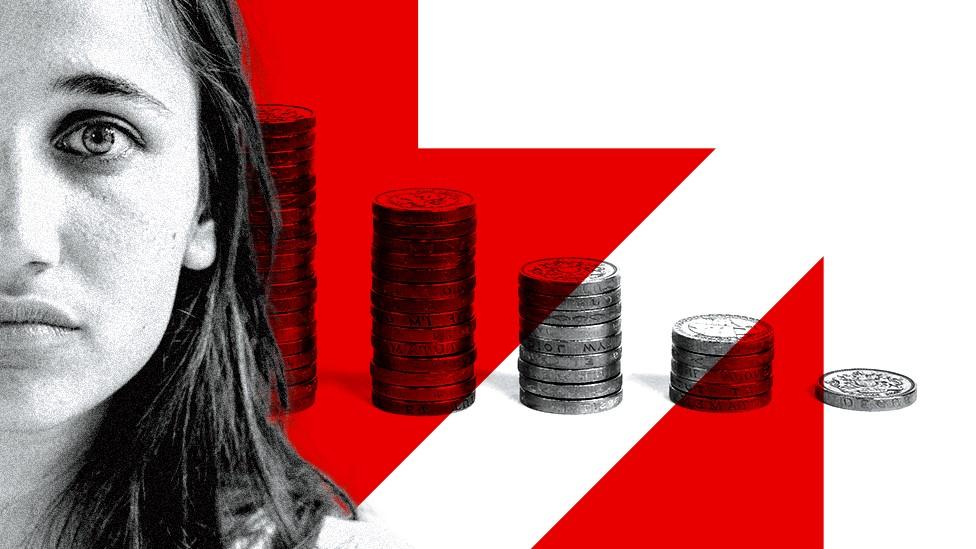Wales in recession for first time in 11 years
- Published
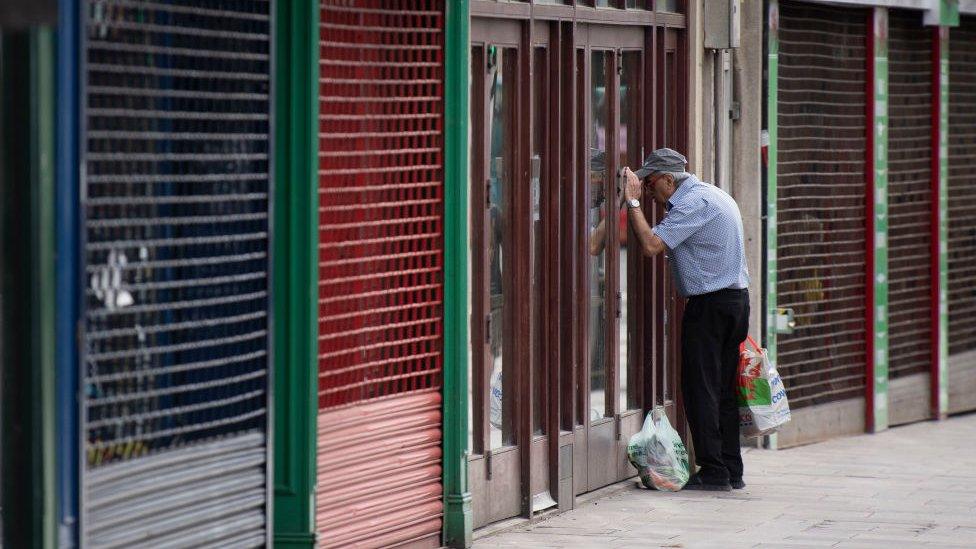
The UK economy shrank by more than a fifth between April and June
Wales is officially in recession for first time in 11 years due to the impact of the coronavirus pandemic.
The lockdown saw household spending plunge as shops were ordered to close, while factory and construction output also fell.
The UK economy shrank 20.4% between April and June compared with the first three months of the year.
Officials said the economy bounced back in June as restrictions on movement started to ease.
On Monday, the latest unemployment figures suggested the full force of lockdown had not hit jobs in Wales to a significant extent.
The rate of unemployment in Wales between April and June was down, at 2.7%, with 8,000 fewer people unemployed than between January and March, Office for National Statistics (ONS) figures showed.
That was 20,000 fewer than the same period a year ago.
The figures do not include the millions of people who are furloughed, those on zero-hours contracts but not getting shifts, or people on temporary unpaid leave from a job, as they still count as employed.
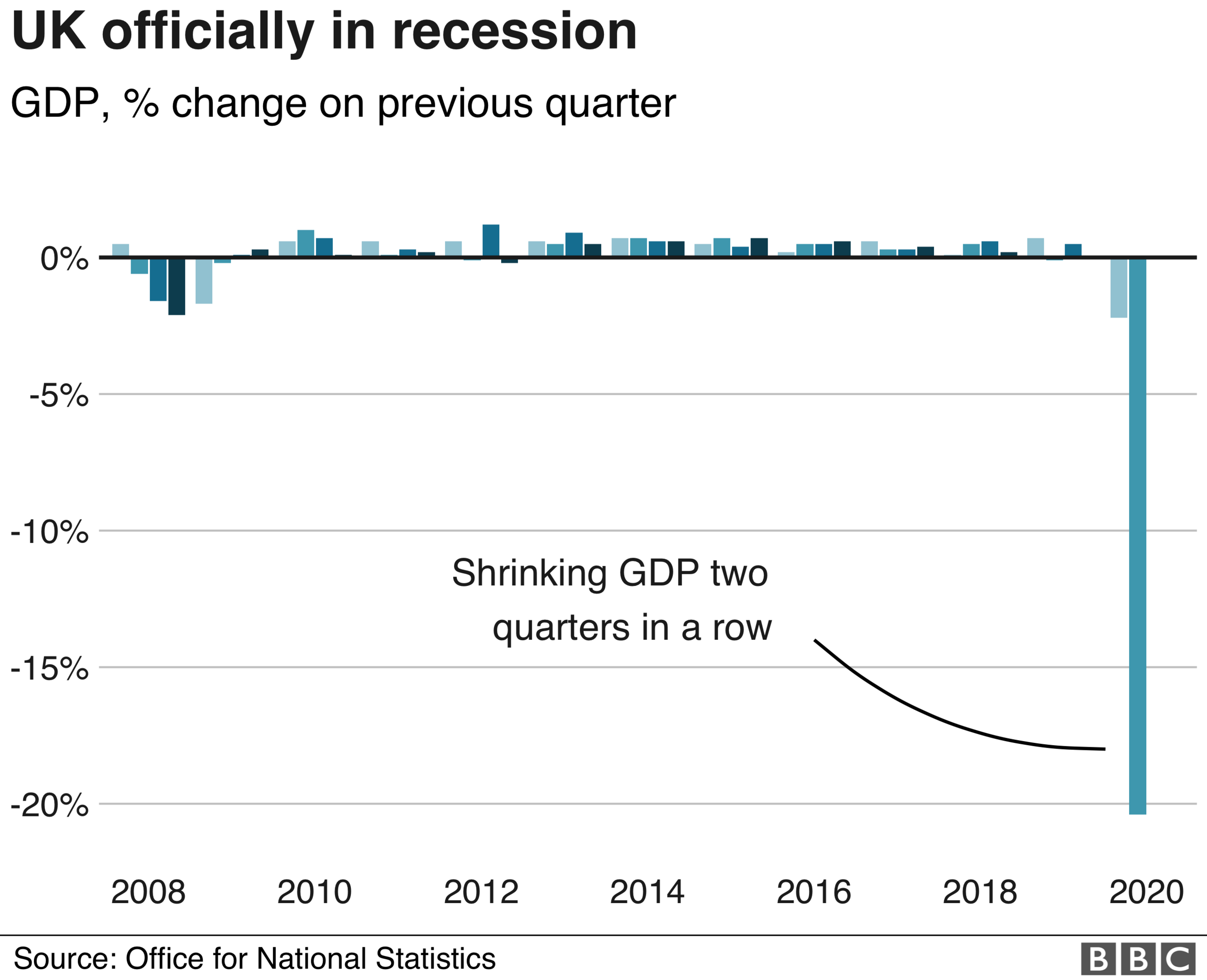

Julie James, the Welsh Housing and Local Government minister, said there needed to be action at a UK level to help the economy in Wales.
"There are three things the UK government can do that we cannot," she told BBC Radio Wales Breakfast.
"One is the furlough issue, and the supporting of businesses who can't bring all their employees back but who we want to still be here at the end of the pandemic.
"The second one is a more generous package of support for people who fall out of work, so they can get back into work quickly.
"And the third one is the old chestnut of our trading relationship with the European Union.
"We depend very heavily on that trading relationship, and the idea that we're heading towards a no-deal Brexit or a hard Brexit at pace in the middle of this recession it just beggars belief to be honest."
Economy Minister Ken Skates said the coronavirus pandemic was having a "severe impact on our economy" but the Welsh Government was "doing all that we can to mitigate its effects on businesses, jobs and livelihoods".
He said the Welsh Government's package of assistance for business was "the most comprehensive and generous in the UK".
He also called on the UK government to maintaining the furlough scheme "until we are through the worst of the crisis".
Analysis from BBC Wales economics correspondent Sarah Dickins
This affects all of us - it means there's less money swirling around.
When you hear phrases such as "GDP has fallen" it can feel really remote but what that ultimately means is because people are making, buying and selling less there is less work and less pay.
For us in Wales, the accommodation and food sector has been hit hard. And for rural Wales in particular, that sector is really important to the vibrancy of communities.
What we don't know is how people's spending behaviour will change as we move out of lockdown.
The term recession means the economy has contracted for six months so the UK economy was contracting even before coronavirus hit - although it is clear lockdown has had a big part to play.
It wasn't long ago that people were saying wages hadn't picked up from the last recession 11 years ago - now we're going into another storm.

Building a way out for the economy?
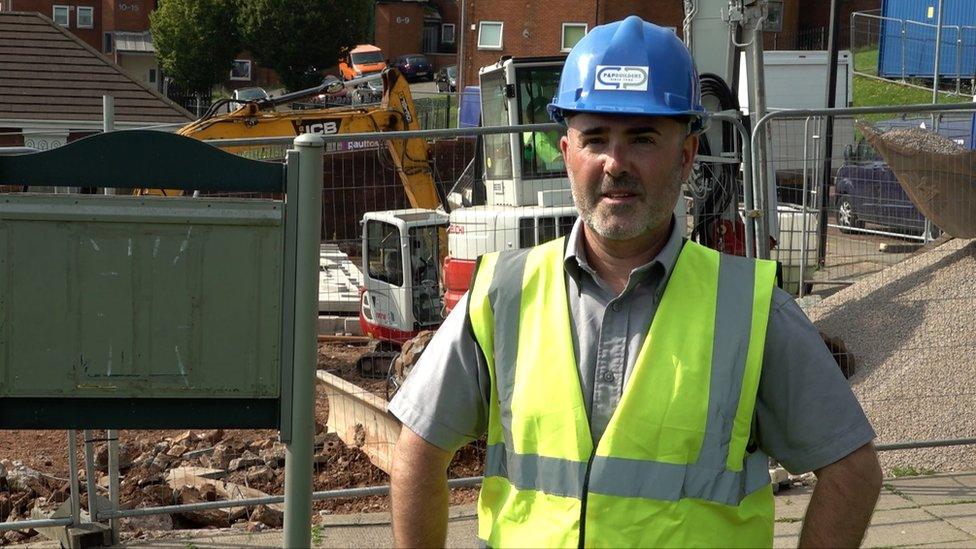
Building firm development manager Tim Crooks says the economy raises questions for his industry
For the last 30 years, Tim Crooks has helped establish P&P Builders in Blaenavon as a key business in Torfaen.
The firm competes for contracts from housing associations and local authorities.
When lockdown hit in March, it took the same steps many companies did - closing down, and putting its 80 strong workforce on the UK government's job retention furlough scheme.
Since restrictions began to ease in June, the building firm is back at work - but like many others, development manager Mr Crooks is working in the "new normal".
"Obviously it was a great period of uncertainty across all sectors, and for us as a small company cash flow is important - so if you're not working, we're not creating any money, and we can't reinvest that back in the business. The longer that went on, the more difficult it was," he reflected.
"Things are a lot quieter around. A lot has changed in terms of the supply chain. Since the last recession, you know there's a lot of suppliers and merchants having difficulties at the moment."
Mr Crooks said those difficulties meant longer waits to get basic components on to a development site - even down to items such as gas and electricity meters.
"Nobody can forecast exactly what's going to happen, particularly in terms of unemployment and future work," he added.
However, he said his firm, like many in the small construction industry, had moved more towards building in the public sector, and that did offer some security - especially at a time when there remains a chronic shortage of cheap affordable housing.
- Published12 August 2020
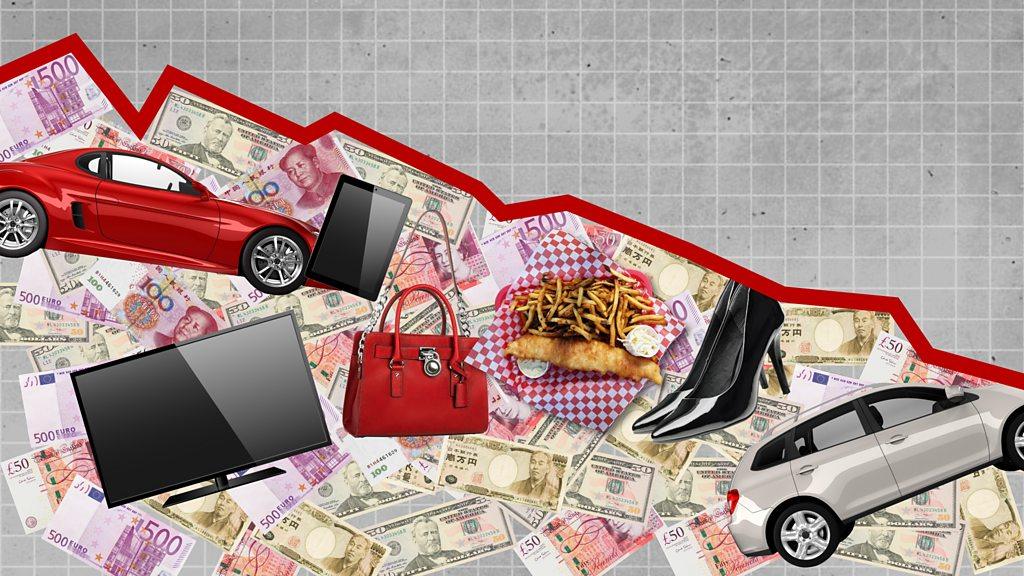
- Published10 May 2024
